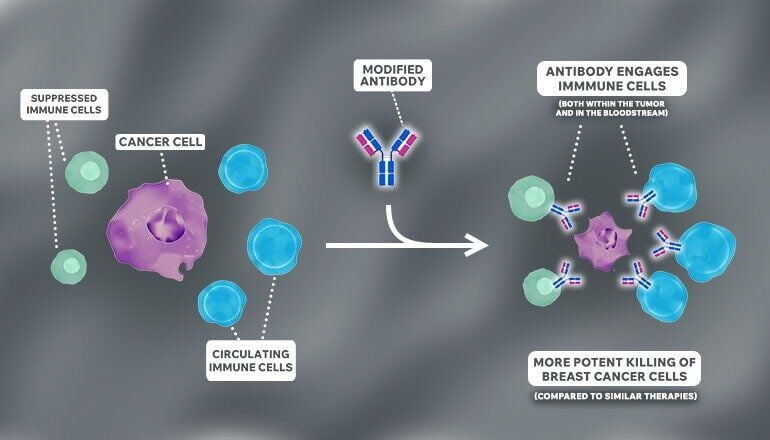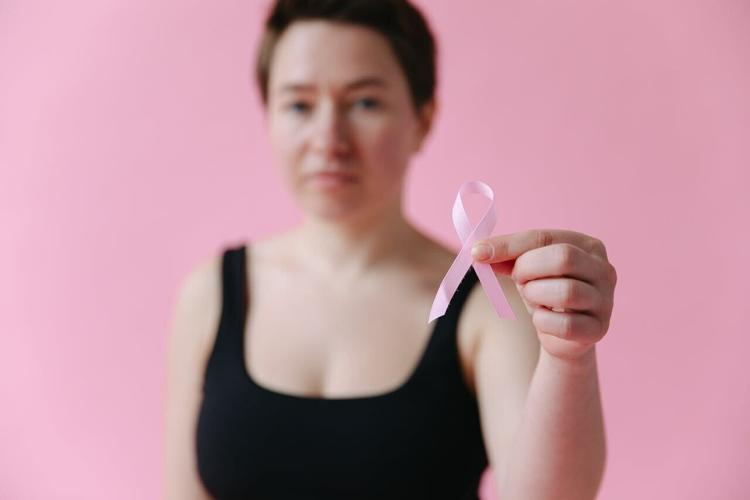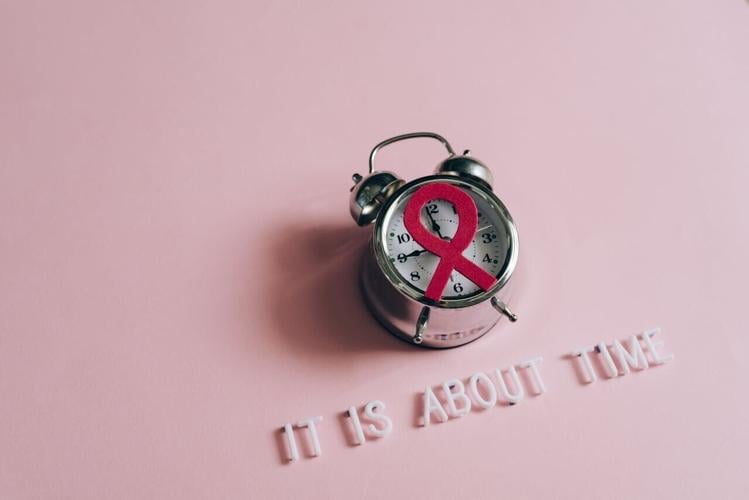
(Photo by Thirdman via Pexels)
By Stephen Beech
A newly developed antibody that restricts the growth of treatment-resistant breast cancers offers new hope for patients.
It may be able to treat some of the most aggressive forms of the deadly disease, say scientists.
The breakthrough gives new options for patients whose cancers no longer respond to existing therapies, as well as those with triple-negative breast cancer, for which current treatments are limited.
Researchers at King’s College London designed the new antibody that not only attacks the tumor cells directly, but also harnesses the body’s own immune defenses.
They explained that the first of its kind "triple-engineered antibody" latches onto cancer cells on one end and draws in immune cells on the other.
The Breast Cancer Now Research Unit at King’s College London has been in the vanguard of work to modify antibodies to boost their ability to activate immune cells for more than a decade.
The team focuses on studying the patient’s immune system with a view to designing and testing innovative antibodies able to activate the patient’s immune response.

Graphic showing how the triple-engineered antibody latches onto cancer cells on one end and draws in immune cells on the other. (King's College London via SWNS)
In the new study, published in the journal Cancer Research, lab experiments and animal models revealed the modified antibody bound immune cells more strongly compared to current treatments.
That activated the immune cells already present in the tumor to attack it, limiting the growth of tumors in triple-negative and treatment-resistant breast cancers.
The research team also found that the modified antibody activated immune cells circulating in the bloodstream, which could boost the body’s overall ability to detect and fight cancer.
Study first author Dr. Alicia Chenoweth said: “By making a few key changes in the structure of the antibody, we found that it could activate the immune system much more powerfully than an unmodified antibody currently used in breast cancer treatment.
“Many of the immune cells in breast tumors are in a ‘suppressed’ state, difficult to activate with unmodified antibodies.

(Photo by Thirdman via Pexels)
"We found our triple-engineered antibodies were not only able to activate these immune cells to kill the cancer cells, but shifted these immune cells to a more ‘activated’ state overall.”
Study leader Professor Sophia Karagiannis said: “By examining key immune cell receptors in breast tumors, including those tumors resistant to chemotherapy and immunotherapy, we have designed our antibody to make them interact better and harness the immune system in a way that has never been done or tested in cancer before.
“If it proves successful, it could stimulate the immune system directly and address the significant unmet need we see in treatment-resistant cancers, including triple-negative breast cancer.”
Triple-negative breast cancer accounts for around 15% of all breast cancers.
Karagiannis explained that it lacks receptors for the hormones oestrogen and progesterone and the HER2 protein, which are often treatment targets in other subtypes of breast cancer.
Because it lacks those targets, standard hormone therapies and drugs that target HER2 are ineffective, leaving patients with fewer treatment options and a higher risk of recurrence.

(Photo by Leeloo The F
Dr. Simon Vincent, chief scientific officer at Breast Cancer Now, said: "This promising, early-stage research offers hope for more and better treatments for over 8,000 women who are diagnosed with triple negative breast cancer each year in the UK."
He added: “We know how urgently these women need new treatment options, as this form of the disease can be more challenging to treat, may be more likely to return or spread in the first few years following treatment, and it affects younger women and black women more than other groups.
"By funding research like this, we’re driving progress towards ensuring everyone with breast cancer lives and lives well.”
The King’s College team is now working towards developing immune-active antibodies so that they can be tested in patients in clinical trials.
Further lab work is being conducted to optimize the therapy, including extending how long the antibody lasts in the body and ensuring it can activate a broader range of immune cells.
The research team says the new therapy has the potential to treat other cancers as one of the antibody targets is also present in ovarian and endometrial cancers.
























(0) comments
Welcome to the discussion.
Log In
Keep it Clean. Please avoid obscene, vulgar, lewd, racist or sexually-oriented language.
PLEASE TURN OFF YOUR CAPS LOCK.
Don't Threaten. Threats of harming another person will not be tolerated.
Be Truthful. Don't knowingly lie about anyone or anything.
Be Nice. No racism, sexism or any sort of -ism that is degrading to another person.
Be Proactive. Use the 'Report' link on each comment to let us know of abusive posts.
Share with Us. We'd love to hear eyewitness accounts, the history behind an article.